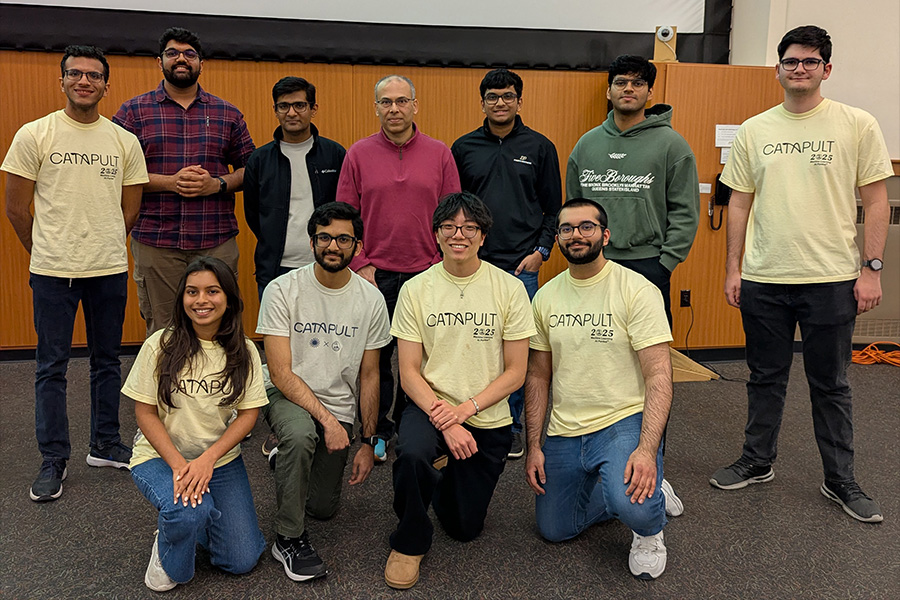24 hours, 200 students, infinite ideas: Catapult Hackathon ignites AI and Entrepreneurship
24 hours, 200 students, infinite ideas: Catapult Hackathon ignites AI and Entrepreneurship

The furious clicking of keyboards and excited chatter — whether over soldering parts of a robot or debating the merits of different artificial intelligence models — echoed through Purdue University’s Wilmeth Active Learning Center for 24 hours during the Catapult hackathon, held April 12–13.
About 200 student contestants, primarily from the Elmore Family School of Electrical and Computer Engineering and the Department of Computer Science, took part in the student-run event focused on AI and entrepreneurship.
Now in its second year, Catapult is organized by the ML@Purdue student club and drew significant corporate sponsorship. Companies including Anon, Vercel, WolframAlpha, ElevenLabs, Engineered Innovation Group and AWS Cloud contributed awards and perks for participants.
Electrical and computer engineering doctoral student Jinen Setpal, a member of the organizing team, managed access to GPU clusters and helped shortlist teams for the final round.
Out of 44 participating teams, nine finalists were selected to present their projects to a panel of judges. Saurabh Bagchi, professor of electrical and computer engineering, was among the judges.
“The combination of innovative technical ideas along with well-thought-out business cases was impressive,” Bagchi said. “To think that these students pulled all this off in 24 hours was all that more impressive.”
He was joined on the panel by Kaushik Immadisetty of Purdue Innovates, Vivek Yadav of Stripe and Hardik Patil of Anon, an internet infrastructure startup.

The overall winning project was Magic Mirror, which developed a system to train robots to navigate various physical terrains. The team members — Pranav Chitiveli, Aman Mridha, Edric Zhu, Sankalp Singh and Aditya Mohan — are undergraduates studying computer science, aerospace engineering and cybersecurity.
The runner-up for best overall project was MedAR, a mobile augmented reality prototype designed to teach brain surgery.
In keeping with the event’s entrepreneurial theme, each team was required to present a business case for its product. The award for best startup idea went to Danny.AI, which proposed a system to track home remodeling projects — potentially easing a common headache for homeowners.
“It takes a true passion for their craft from each participant to opt into what is the hackathon equivalent of crazed last-minute homework completion,” Setpal said. “I felt the excitement shine through that 24-hour window, so I'm glad I got the opportunity to help put this together alongside Leo, Lavangi, Shrung, Alex, Arnav and the rest of ML@Purdue’s leadership team.”
Some projects focused on student needs. One winner in the best browser automation category was Gradesaver, a tool designed to help students phrase regrade requests more effectively.
“This was only the second year of Catapult and organizing it in such a short time with a smaller team than most hackathons was definitely a challenge,” said Leo Deng, ML@Purdue president and lead organizer. “But our ML@P team really pulled through. I want to thank Arnav, Lavangi, Shrung, Alex, Bisti, Shriya, Aadi and Shantanu for making this all possible. I was blown away by the quality of projects we saw this year; it went far beyond my expectations.”
The entire gallery of projects developed at this year’s Catapult is available at: https://catapult-hacks-2025.devpost.com/project-gallery
